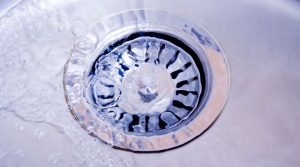Hard water issues can wreak havoc on your plumbing system, appliances, and even your personal hygiene. Installing a water softener can be an effective solution to combat these problems, providing significant benefits to your household and prolonging the life of your plumbing fixtures.
Hard water contains high levels of minerals like calcium and magnesium, which can lead to various issues such as limescale buildup in pipes, decreased efficiency of water-using appliances, dry skin and hair, and unsightly spots on dishes and glassware.
Water softeners work by removing these minerals, resulting in softer water that can enhance your everyday life and protect your home’s plumbing system. By exploring the wide array of water softener options available today, homeowners can make an informed decision on the best system to meet their specific needs and enjoy the numerous benefits of improved water quality.
In the following sections, this guide will delve into the finer points of water softener installation and the factors to consider when making your decision. From understanding the different types of water softeners to evaluating the size and capacity of various systems, you’ll be well-equipped to make an informed choice for your home. We’ll also discuss the importance of professional installation, regular maintenance, and how to get the most out of your water softener investment.
Understanding Different Types of Water Softeners
Before diving into water softener installation, it’s essential to understand the various types of systems available on the market:
1. Salt-based ion exchange: The most common type of water softener, these systems use salt and ion exchange resins to remove hard water minerals, replacing them with sodium or potassium ions. The resin beads must be periodically regenerated using a salt solution.
2. Salt-free water conditioners: These systems use a range of alternative methods, such as crystallization, citric acid, and magnetic technology, to reduce the effects of hard water without actually removing the minerals. While not as efficient as salt-based systems, they require less maintenance and do not add sodium to the water.
3. Dual-tank water softeners: This system features two resin tanks, ensuring that you have access to soft water even when one tank is regenerating. Ideal for larger households or high water usage, these systems offer a continuous supply of softened water.
4. Reverse osmosis systems: These systems remove a variety of contaminants, including hard water minerals, by forcing water through a semi-permeable membrane. Although they produce softer water, these systems can be less efficient and generate more waste water compared to other types of water softeners.
Choosing the Right Water Softener for Your Home
Now that you have a grasp of the available types of water softeners, consider these factors when making your decision:
1. Water hardness: Test your home’s water hardness level, measured in grains per gallon (GPG), to determine the appropriate size and type of water softener system.
2. Household size and water usage: Evaluate the water usage in your household by factoring in the number of occupants and water-consuming appliances, as this will impact the required capacity of your water softener system.
3. Regeneration method: Water softeners use different regeneration methods, such as time-based, meter-based, or manual. Choose a system with a regeneration method that best suits your needs and preferences.
4. Budget and long-term costs: Consider not only the upfront costs of the water softener system and installation, but also ongoing expenses such as salt, maintenance, and water usage.
Professional Water Softener Installation: A Worthy Investment
To ensure optimal performance and efficiency of your water softener, professional installation is highly recommended. Here’s why investing in a skilled professional is crucial:
1. Expert guidance: A licensed and experienced plumbing professional can help you choose the right system, considering the specific needs of your household and water quality.
2. Proper sizing and setup: A professional will properly size and set up your water softener, ensuring optimal performance and sufficient water treatment over time.
3. Compliance with local regulations: A licensed plumber will adhere to any local building codes, permits, or regulations that may apply to water softener installations, avoiding potential fines or complications.
4. Warranty protection: Most water softener manufacturers require professional installation to maintain the warranty on their products, protecting your investment and ensuring long-term support.
Maintaining Your Water Softener for Optimal Performance
Regular maintenance is key to prolonging the life and efficiency of your water softener. Here are some essential maintenance tasks and tips:
1. Salt levels: Check and replenish salt levels in your salt-based water softener regularly, ensuring the salt is above the minimum level indicated by the manufacturer.
2. Salt bridges: Inspect the salt tank for salt bridges – hard crusts that prevent the salt from dissolving – and break them up if needed.
3. Cleaning the brine tank: Periodically clean the brine tank to remove any accumulated sediment or debris.
4. Resin bed treatment: Use a resin bed cleaner annually to prolong the life of your ion exchange resin, keeping it efficient and in good condition.
Reap the Rewards of Water Softener Installation and Maintenance
By understanding the various types of water softeners and implementing best practices for installation and maintenance, homeowners can experience the benefits of soft water throughout their household.
Improved water quality will result in a longer life for plumbing fixtures, enhanced appliance efficiency, and a more enjoyable experience for personal hygiene and household cleaning.
If you’re considering a water softener installation for your home or need help maintaining your existing system, the professionals at JustUs Plumbing Services are here to help. Our experienced team is dedicated to providing the guidance and expertise you need to maximize your water softener investment.
Contact us today to schedule a consultation on water softener in Round Rock and take the first step toward enjoying the numerous advantages of soft water in your home!






